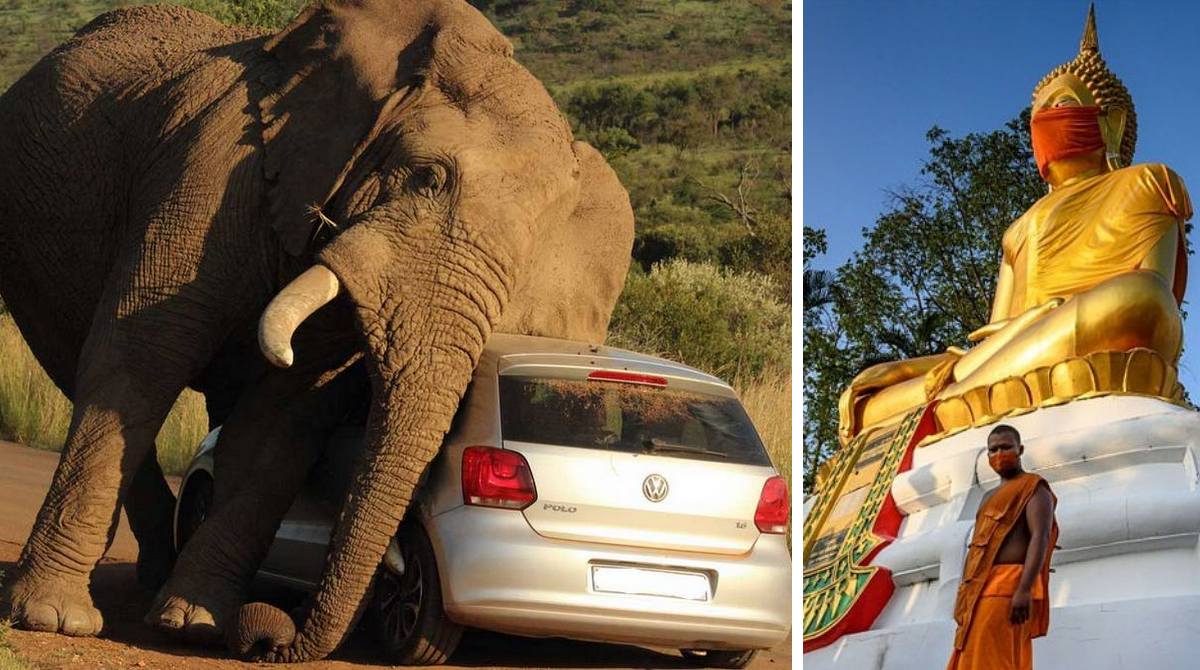In four provinces of Thailand, including the tourist Chonburi, began to have mass problems with the most popular attraction of the Kingdom. During the coronavirus closure and a significant drop in traffic, wild elephants “mastered” the roads of Chonburi and 4 other eastern provinces, including Chachoengsao, Rayong, Chanthaburi and Sa Kaeo. Animals themselves threaten people, in addition, accidentally knocking down an elephant on the road threatens a huge fine and even imprisonment.
According to the director of the Department of Wildlife Protection, according to the Law on Conservation and Protection of Wildlife, drivers who kill elephants can be imprisoned for up to 10 years, fined up to one million baht or both. And regardless of whether the collision was intentional or not. And there have been several such cases this year: in January, a pickup truck hit and killed an elephant on Kanchanaburi Highway, and in February, 35 new “Beware, Elephants!” Signs were posted along the highway. Elephants regularly cross the highway, and signs warn drivers that the speed limit is 60 kilometers per hour, and that they face imprisonment and fines if they beat elephants.
According to Phadet Laitong, director of the wildlife department, the department is trying to limit the space in forest areas where elephants can live and push back elephants that go beyond the designated areas, but there are too many. He added that there was enough food and water for elephants in their designated areas. He also noted that the plans are to create special human patrols on the elephant tracks from local residents, which could warn the authorities where the elephants are moving.
It is currently estimated that there may be 470-480 elephants in Thailand in these areas alone. At the same time, Thailand has banned the use of elephants as pack animals, forcing their owners to look for other ways to feed elephants – and it is possible that they are released into the wild.

